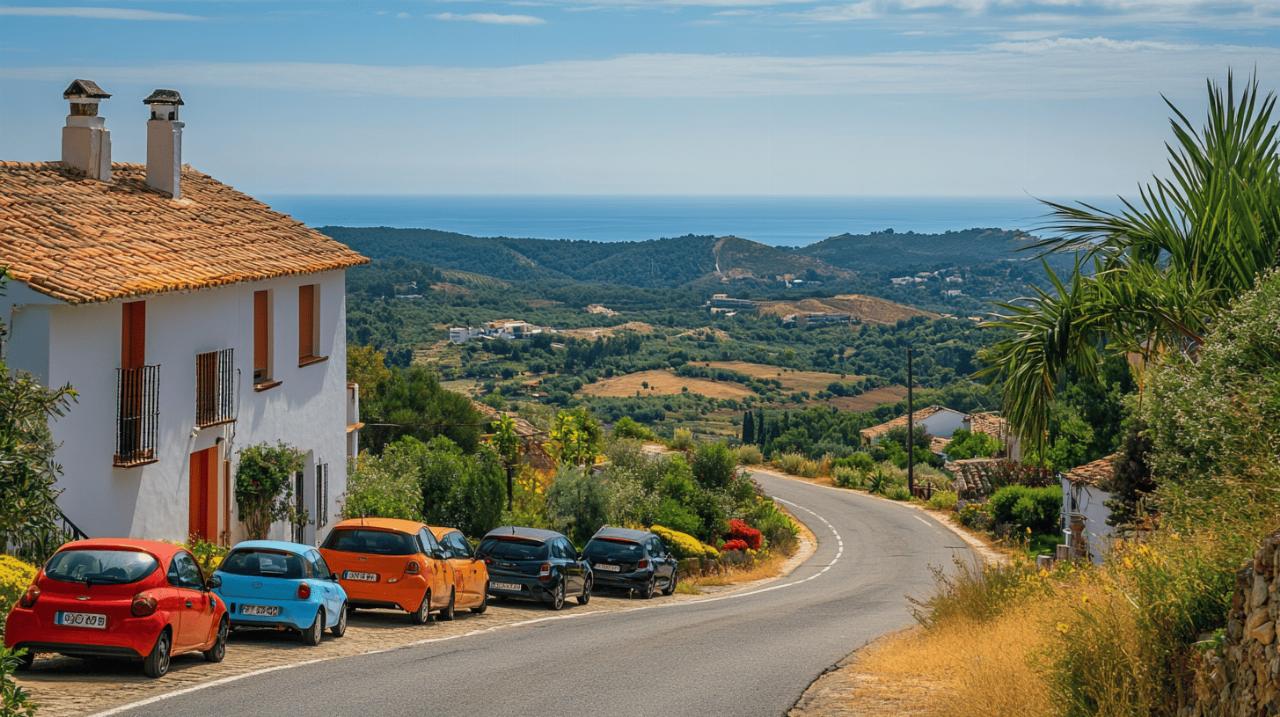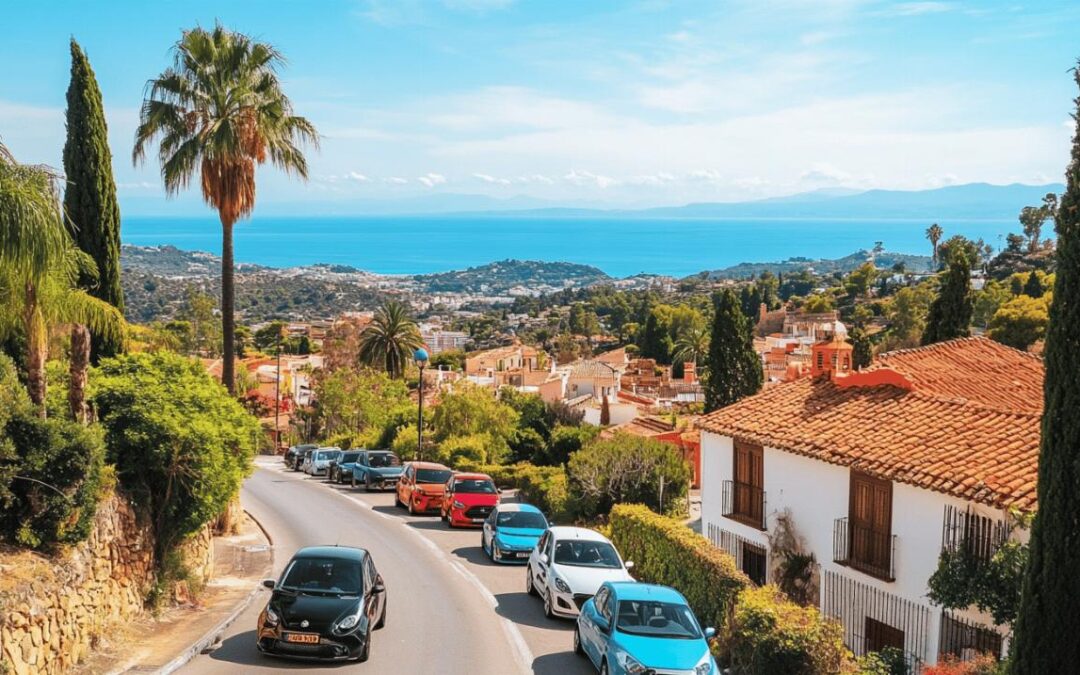Securing an affordable car rental in Spain requires knowledge, planning, and attention to detail – key factors that can significantly reduce costs while maximizing your Spanish road trip experience. Many travelers overspend simply by missing crucial reservation strategies or falling prey to common rental company tactics.
Strategic booking approaches for budget car rentals
Finding economical car rentals in Spain involves understanding the rental marketplace and applying specific booking strategies. The Spanish road network offers excellent value for travelers willing to explore beyond major cities, but securing the best rates demands proactive planning.
Timing your reservation for maximum savings
Booking your rental car well in advance represents one of the most effective ways to secure competitive rates in Spain. Early reservations not only guarantee better vehicle selection but typically come with significantly lower prices. The Spanish rental market tends to inflate costs dramatically as availability decreases, especially during peak tourist seasons. Make sure to book online to avoid surprise charges and always save your booking confirmation details. For comprehensive information about timing strategies and seasonal pricing variations, check out the travel guides available on https://www.elrinconcunqueiru.com/ where experts regularly publish updated articles about economical car rentals in Spain.
Leveraging comparison platforms and discount codes
Utilizing comparison platforms allows you to efficiently evaluate multiple rental companies simultaneously, revealing substantial price differences for identical vehicles. These aggregators display the full range of available options, from major international brands to local Spanish operators who might offer better rates. When reviewing listings, pay special attention to fuel policies (full-to-full is generally most economical), kilometer limitations, and insurance coverage details. Many rental companies profit substantially from upselling extras and insurance packages at the counter. Research discount codes through travel blogs and loyalty programs to reduce your base rate. The motorway network in Spain is excellent, with Autovias (free) providing a cost-effective alternative to the tolled Autopistas when time permits. Smaller vehicles prove more economical for navigating historic city centers and rural villages, while larger cars offer more comfort for long-distance travel across Spain.
Practical ways to minimize extra costs during your rental
Renting a car in Spain offers tremendous freedom to explore the country’s excellent motorway network and charming villages at your own pace. While Spain is considered one of the more affordable European countries for car rentals, knowing how to navigate the booking process and avoid common pitfalls can save you significant money. By booking early through reputable platforms like DiscoverCars.com, you can secure competitive prices and better vehicle selection.
When selecting your vehicle, consider your travel plans carefully. A smaller car works well for exploring historic cities with narrow streets, while a larger vehicle provides more comfort for long-distance journeys. Most major airports including Madrid, Barcelona, Malaga, and Alicante serve as convenient pickup locations. Remember that diesel vehicles are typically more economical than petrol ones, an important factor when planning longer trips.
Always provide your flight number for airport pickups to preserve your reservation if your flight is delayed, and be sure to inform the rental company about any changes to your arrival time. Keep your booking confirmation handy, either by bookmarking the email or writing down the reservation number.
Fuel policy considerations and return requirements
Understanding the fuel policy of your rental company is crucial for avoiding unexpected charges. The most common policies include full-to-full (return with the same amount of fuel you received), pre-purchase (pay for a full tank upfront), and free fuel (rare). The full-to-full option typically offers the best value, but always check the fine print to understand exactly what’s expected.
Before driving away, take time to thoroughly inspect the vehicle. Document any existing damage with photos or videos, paying special attention to dents, scratches, tire condition, and whether the spare tire is properly inflated. Spanish law requires two warning triangles and a reflective vest in every vehicle, so verify these items are present. Test all controls including gas gauge, temperature settings, mirrors, seat adjustments, window controls, and lights. A quick test drive can reveal potential issues that might otherwise go unnoticed.
When returning your rental, repeat this inspection process to document the vehicle’s condition. Check for any new scratches or damage, tire condition, mileage, and fuel level. Taking photos as evidence of the car’s condition at return can prevent disputes about damage charges. Filling the tank at a station near the rental return location will ensure you meet the fuel requirements without paying inflated refueling fees.
Insurance options and damage protection strategies
While third-party insurance comes standard with rental cars in Spain, this basic coverage leaves you responsible for a potentially high excess in case of damage. Consider purchasing Collision Damage Waiver (CDW) insurance to reduce this excess amount. Some credit cards offer rental car excess coverage as a benefit, which could save you money on additional insurance.
Full insurance coverage is recommended for peace of mind, especially given the likelihood of minor scuffs and bumps when navigating unfamiliar roads. Before purchasing insurance directly from the rental company, check if your credit card or travel insurance provides equivalent protection, as rental companies often profit significantly from insurance upselling.
When driving in Spain, familiarize yourself with local regulations. Speed limits are strictly enforced (120 km/h on motorways, 90 km/h on rural roads, and 50 km/h in built-up areas), with fines starting at €100. Spain has both tolled (Autopistas) and untolled (Autovias) motorways, with toll costs ranging from €5 to €30 depending on distance. Mobile data is highly valuable for navigation; consider purchasing an eSim from providers like Airalo to use apps like Google Maps reliably.
Parking deserves careful planning, especially in cities. On-street parking often comes with restrictions and potential fines, making city center garages a safer albeit more expensive option. For extended city visits, consider parking outside the center and using public transport to save on daily parking fees. Remember that children under 135cm must use approved child safety seats, with specific requirements based on age and weight.

